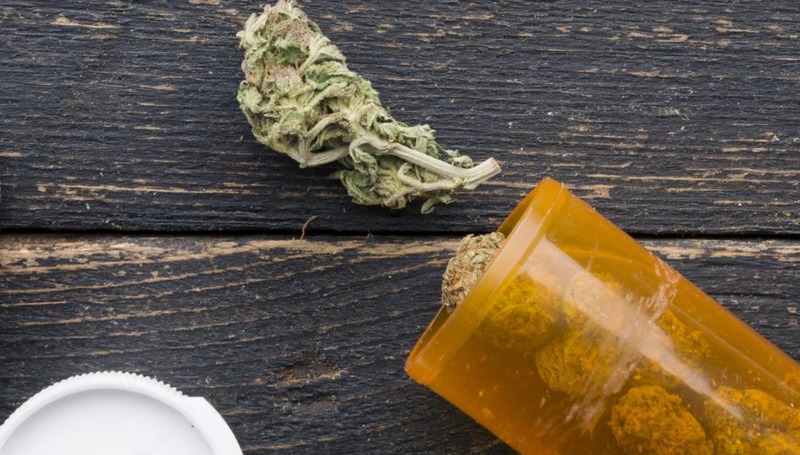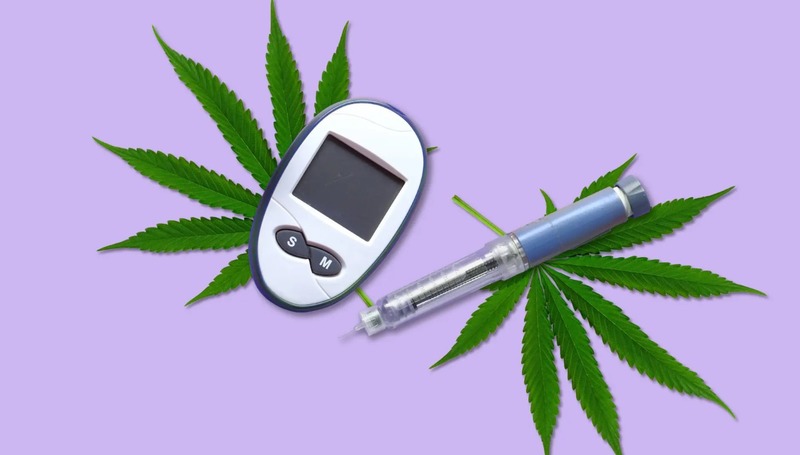What Is Marijuana?
Marijuana is a term for the dried flowers, leaves, stems, and seeds of the cannabis plant. The cannabis plant includes more than 100 chemicals (or cannabinoids), including tetrahydrocannabinol (THC), which is mood-altering or impairing. Other active components in include cannabidiol (CBD), which isn’t mind-altering or euphoric. CBD does not produce a high. Looking to try something new? Check out this.
Marijuana is the most popular illegal drug in the United States, with 48.2 million people using it in 2019. Marijuana use can have a variety of physical and mental health consequences. To learn more about how marijuana usage affects your health, click on the sections below.
What is Diabetes?
Diabetes mellitus, which is frequently known as diabetes, is a group of metabolic disorders characterized by high blood glucose levels. Diabetes is defined as a disease in which the body cannot efficiently produce or respond to insulin. Type 2 diabetes is characterized by a persistent high level of glucose in the blood, which damages the nerve cells and results in disability or death. It’s known that hundreds of millions of people throughout the world have diabetes, and it’s a lifelong illness with no cure but rather with methods for controlling it and alleviating symptoms. Insulin isn’t produced by the body in cases of type 1 diabetes, whereas it is produced insufficiently in those with type 2 diabetes. The majority of all cases of diabetes throughout the world are type 2.

Type 1 diabetes lasts the rest of a person’s life, and it is characterized by insulin injections and blood sugar testing.
Insulin deficiency or insensitivity is a problem in type diabetes. Insulin resistance occurs when the body’s cells do not react appropriately to insulin, which is known as type 2 diabetes. People usually need to reduce weight, exercise regularly, and eat a healthy diet while monitoring their blood glucose levels with type 2 diabetes. Type 2 diabetes tends to be progressive, which means it gets worse over time and leads to the need for insulin use.
The most significant risk factor for type 2 diabetes is being overweight or obese, and those who have a lot of abdominal fat are at a considerably elevated danger. You’re also more likely to get type 2 diabetes as you grow older.
Diabetes is an illness of the metabolism, and while there is no known cure for type 1 diabetes, some people may be able to control type 2 symptoms by eating properly, maintaining a healthy weight and exercising regularly.
Benefits For People With Diabetes
Marijuana may offer a variety of advantages for persons with diabetes.
According to the American Diabetes Association (ADA), marijuana can help patients with diabetes in the following ways:
- stabilizing blood sugar levels
- lowering arterial inflammation due to its antioxidant properties
- reducing neuropathic pain, a complication of diabetes
- keeping blood vessels open, which may reduce blood pressure over time and improve circulation
- providing relief from muscle cramps
- relieving gastrointestinal pain and cramping
However, the AAMC reminds us that these advantages have been the subject of contradictory research. The study of medicinal marijuana is still in its early stages, and additional research is necessary in order for medical experts and patients to better understand the therapeutic and harmful effects.
Marijuana may offer other benefits for people with diabetes.
Smaller Waist Size and Lower Risk of Obesity
One of the most serious risk factors for type 2 diabetes is obesity or being overweight.
Marijuana use has been linked to a decreased risk of obesity and diabetes, according to research. Obesity is linked to an increased risk of type 2 diabetes, which can be reduced by marijuana use. A 2013 research of 4,657 individuals, including 579 current marijuana users and 1,975 past users, found that being smaller in the waist was associated with marijuana usage.
On average, those who continued to use marijuana had a waist circumference of 1.5 inches (3.8 centimeters) smaller than those who did not, according to the study.
This study adds to earlier research that found cannabis users were less likely to become obese than non-users.
Increased Insulin Sensitivity
The ability of the body to utilize insulin properly is essential for good health. People with type 2 diabetes, on the other hand, have a reduced sensitivity to the effects of insulin and are less responsive to it.
Marijuana has been linked to improved insulin sensitivity in studies. Users’ fasting insulin levels were 16% lower than those of both former users and non-users, according to a large research. On average, the levels of insulin resistance in this group were 17% lower as well.
Why Medical Marijuana?
According to NORML, the National Organization for the Reform of Marijuana Laws, based in Washington DC, the endocannabinoid system might be “the most essential physiologic system involved in establishing and maintaining human health,” which is known as “
“Endocannabinoids are present throughout the body, including in the brain, organs, connective tissues, glands, and immune cells. The cannabinoid system accomplishes various functions in each tissue but always with the aim of maintaining homeostasis: the maintenance of a constant internal environment despite changes in the external environment… Cannabinoids promote homeostasis at every level of biological existence, from sub-cellular to organismal levels. ”
NORML and other cannabis supporters and advocates “feel that modest, frequent doses of cannabis may act as a tonic to our most fundamental physiological healing system.”
